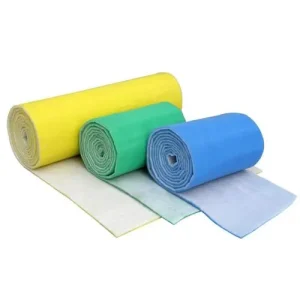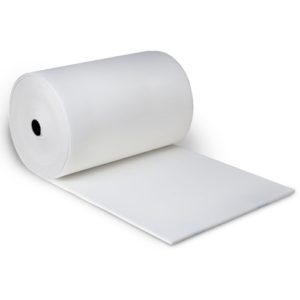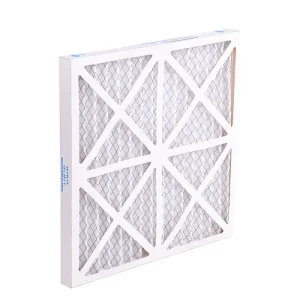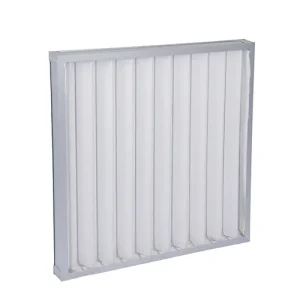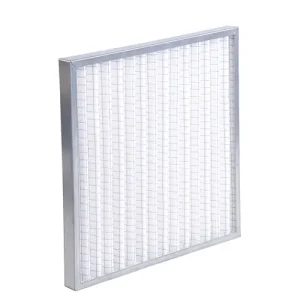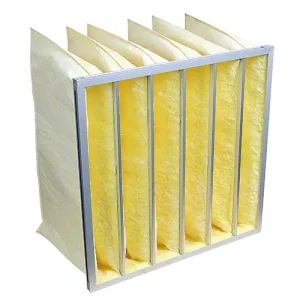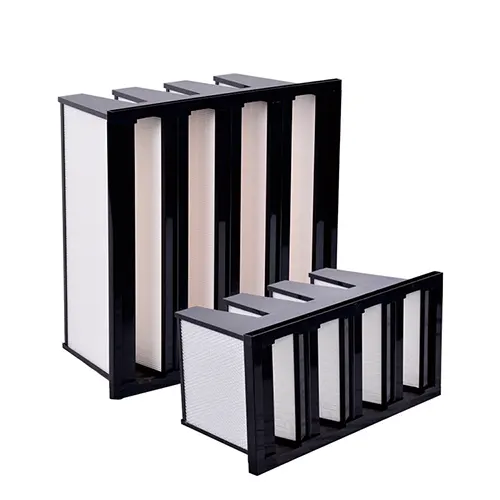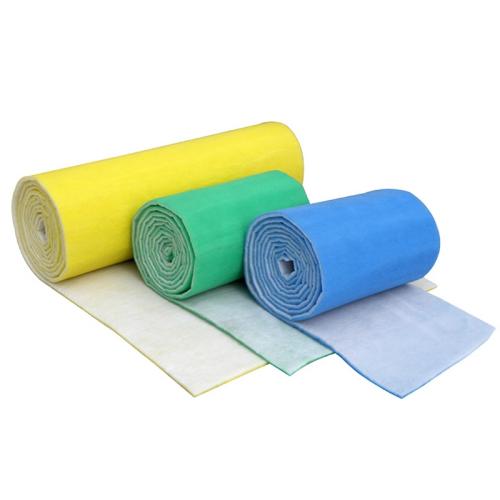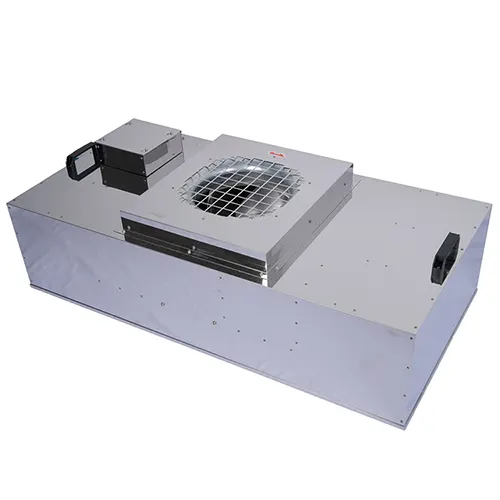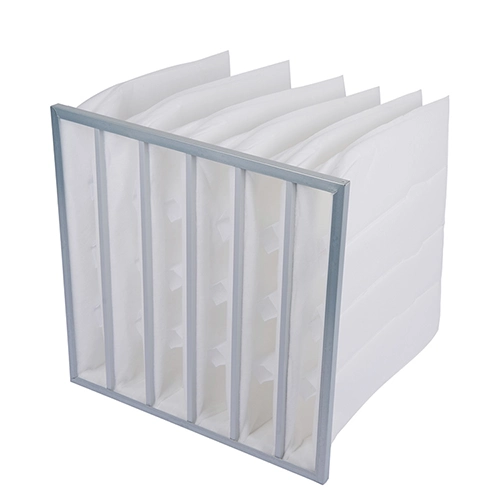Improving Indoor Air Quality in Large Buildings: The Role of HVAC Air Filters
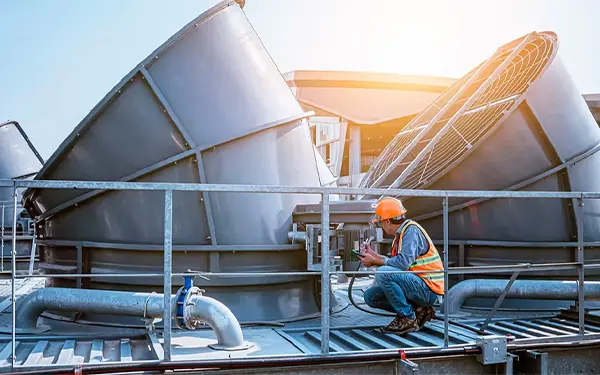
Walking into a large building, whether it’s a bustling corporate office, a sprawling shopping center, or an expansive educational campus, one of the first things you might notice, without even realizing, is the quality of the air around you.
Indoor air quality (IAQ) in such large buildings is a crucial aspect of health and well-being for everyone inside. In these vast spaces, where air circulates differently than in smaller environments, maintaining clean, breathable air becomes both a challenge and a priority.
Air filters in HVAC systems do more than just trap dust and debris; they are pivotal in capturing a myriad of airborne particles, from pollen and mold spores to bacteria and even viruses.
Table of Contents:
Section 1: The Challenge of Air Quality in Large Spaces
Section 2: Understanding HVAC Air Filters
Section 3: Benefits of High-Quality HVAC Air Filters
Section 4: Selecting the Right Air Filters for Large Buildings
Section 5: Maintenance Tips for Optimal Performance
The Challenge of Air Quality in Large Spaces
Definition of contaminants
Maintaining optimal air quality in large buildings poses a distinct set of challenges, magnified by their expansive spaces and the complex activities they host.
The sheer volume of air, coupled with the diverse sources of indoor pollution — from everyday office equipment to industrial processes in some settings — makes the task daunting. Factors such as the building’s design, ventilation systems, and the varying occupancy levels throughout the day further complicate air quality management.
The significance of tackling these air quality challenges cannot be overstated. The health implications are profound for individuals who spend a considerable portion of their day within these structures.
Poor air quality can exacerbate or lead to respiratory conditions, and allergic reactions, and even affect cognitive function, directly impacting productivity and well-being. Furthermore, in environments like healthcare facilities or laboratories, the stakes are even higher, where air quality can influence patient recovery and experiment outcomes.
Moreover, the comfort of building occupants — a factor directly influenced by the air they breathe — can affect their satisfaction and performance. Unpleasant odors, excessive dust, or a feeling of stuffiness detract from the overall environment, making it less conducive to work or leisure.
Addressing the air quality challenges in large spaces is thus not just a matter of health but also integral to creating pleasant, productive, and safe indoor environments for workers, customers, and visitors.
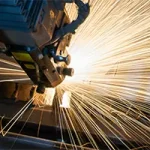
Manufacturing
Understanding HVAC Air Filters
Basic explanation of HVAC air filters and their function
HVAC air filters are essential components within commercial buildings’ heating, ventilation, and air conditioning (HVAC) systems. Their primary function is to purify the air circulating through these systems by trapping dust, pollen, mold spores, bacteria, and other airborne particles.
This filtration process not only improves indoor air quality but also protects the HVAC equipment from the damaging effects of these particles, ensuring the system operates efficiently and effectively.
The significance of choosing the right filters for large buildings
The significance of selecting the appropriate filters extends beyond just maintaining a clean air supply; it impacts the overall health and well-being of occupants.
High-quality air filters can reduce the prevalence of airborne diseases and allergens, enhancing comfort and productivity.
Moreover, the right filters contribute to the sustainability of the building by improving energy efficiency and reducing maintenance costs for the HVAC system.
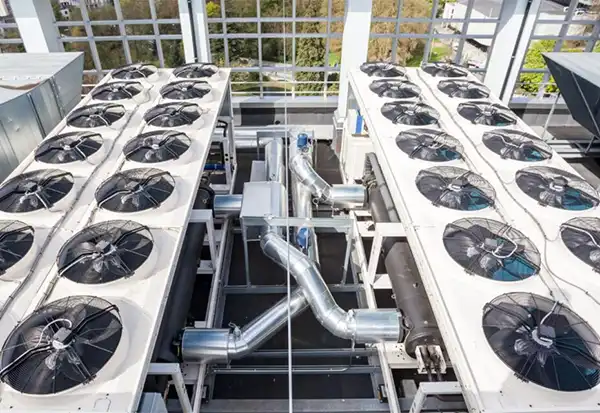
Benefits of High-Quality HVAC Air Filters
Investing in high-quality HVAC air filters brings about significant benefits that extend well beyond simply filtering the air. These benefits are especially pronounced in large commercial buildings where the volume of air, number of occupants, and energy usage are considerable.
Improved health for occupants
First and foremost, high-quality air filters are instrumental in improving the health of those within the building.
By efficiently capturing a wide range of pollutants, these filters significantly reduce the risk of respiratory problems, allergies, and other health issues related to poor air quality. Cleaner air means fewer sick days, enhanced comfort, and a more conducive working or living environment for everyone.
Enhanced efficiency of HVAC systems
By preventing dust and debris from accumulating in the system’s components, these filters help maintain optimal airflow and reduce the strain on the HVAC system.
This results in smoother operation, less wear and tear, and an extended lifespan of the system. Additionally, with the system running efficiently, there’s less risk of unexpected breakdowns and costly repairs, ensuring that the indoor climate remains comfortable year-round without interruption.
Cost savings over time through energy efficiency
When the HVAC system operates efficiently, it consumes less energy, leading to lower utility bills. Considering the significant portion of energy used by HVAC systems in large buildings, the savings can be substantial.
Moreover, the extended lifespan of the HVAC system and reduced need for repairs translate into further financial benefits. Investing in superior air filters enhances the health and efficiency of a building and proves to be economically advantageous in the long run.
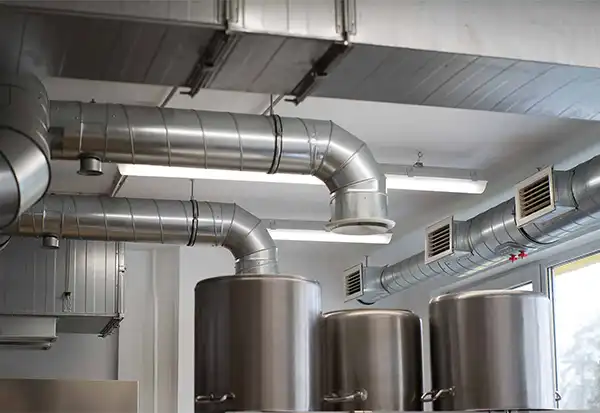
Selecting the Right Air Filters for Large Buildings
Selecting the right air filters for large buildings is a nuanced decision that can significantly impact indoor air quality, energy consumption, and overall building health.
Several key factors need to be considered to ensure that the chosen filters meet the specific needs of the building and its occupants.
Factors to Consider
Filter Size: The size of the filter must match the specifications of the HVAC system to ensure proper fit and function. An ill-fitting filter can allow unfiltered air to bypass the filter, reducing the system’s overall effectiveness.
Filter Type: There are various types of filters available, ranging from fiberglass and pleated filters to more advanced options like HEPA filters. Each type has its advantages and specific use cases, depending on the level of filtration required and the potential pollutants present in the building.
MERV Rating: The Minimum Efficiency Reporting Value (MERV) rating measures a filter’s ability to capture larger particles between 0.3 and 10 microns. Filters with higher MERV ratings can capture more and smaller particles, providing better air quality.
The choice of MERV rating should balance the need for clean air with the system’s capacity to handle the airflow restriction that higher MERV-rated filters may introduce.
The Impact of Choosing Higher-Quality Filters
Investing in higher-quality air filters can have a profound impact on a large building’s environment:
Healthier Indoor Environment: High-efficiency filters can significantly reduce the concentration of pollutants and allergens in the air, leading to a healthier indoor environment. This is especially important in buildings frequented by individuals with allergies, asthma, or other respiratory conditions.
Enhanced HVAC Efficiency: Advanced filters with higher MERV ratings not only clean the air more effectively but can also improve the efficiency of the HVAC system.
By removing more particulates from the air, these filters help prevent the buildup of debris in the system, which can impede airflow and reduce efficiency.
Long-Term Cost Savings: While higher-quality filters may have a higher upfront cost, they can lead to significant cost savings over time. Improved efficiency reduces energy consumption, lowering utility bills. Additionally, cleaner air means less wear and tear on the HVAC system, potentially reducing maintenance and repair costs.
Maintenance Tips for Optimal Performance
To ensure your HVAC system operates at peak efficiency and continues to improve indoor air quality, adhering to a consistent maintenance routine is key.
Regular Checks and Replacement Schedules
Set a Schedule: Mark your calendar for regular HVAC filter checks. Depending on the filter type and building usage, replacement may be needed every 3-6 months.
Monitor More Frequently: In high-traffic areas or environments prone to dust, consider more frequent inspections to ensure filters are not clogged prematurely.
Professional Maintenance and Assessments
Annual Inspections: Engage with HVAC professionals for annual system inspections. They can assess system health, efficiency, and whether any components need attention or replacement.
Expert Recommendations: Contact air filter professionals to get tailored advice on the best filter types for your specific building needs and how to optimize your HVAC system for both air quality and energy consumption.
Conclusion
HVAC air filters play a critical role in maintaining the health, efficiency, and sustainability of large commercial buildings. Selecting the right filters and adhering to regular maintenance schedules are key to improving indoor air quality and ensuring the well-being of occupants.
Emphasizing the importance of these practices is an investment in a healthier, more productive environment for all.
CleanLink – Air Filter manufacturer
As a leading and reliable air filter manufacturer and filtration solution provider, Cleanlink has been manufacturing a wide range of air filters for over 16 years.
We possess a comprehensive understanding of air filtration and can tailor air filters to meet your specific needs.
Contact the air filter expert team now to receive a custom solution for your air filtration project.





